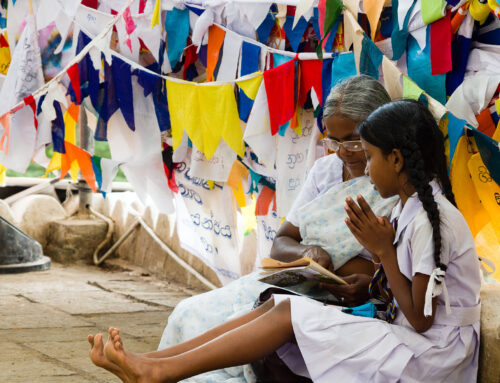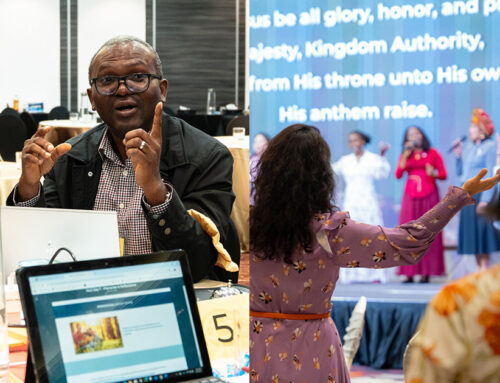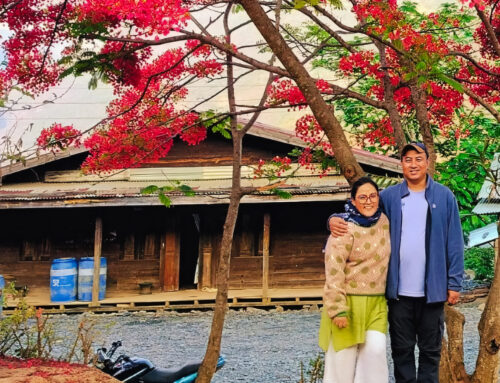When Sharing the Gospel Feels Pointless
Prisons in Mongolia are harsh and have a dark history of torture. Some held prisoners in wooden “coffins,” well into the 20th century. Amnesty International has documented torture, neglect, and inhumane treatment, and the U.S. Department of State found last year that “some prisoners and detainees were subjected to unnecessary force and cruel, inhuman, or degrading treatment or punishment, particularly to obtain confessions.” While there are cameras in some facilities, they’ve been conveniently “broken” during moments of physical harm to prisoners. In prisons in the country, prisoners spend most of their days laboring outside in harsh weather conditions. It’s something all Mongolians are aware of, but what hope can they bring?
Khongor Munkhtugs decided apathy wasn’t a course of action. Fifteen years ago, when sharing the Gospel was forbidden in Mongolian prisons, Haggai leader Khongor Munkhtugs started a non-governmental organization (NGO) so that he and his ministry partners could run programs with the inmates. They played games, organized competitions, brought in food and drinks at their own expense, and made it their goal to always end the program singing two worship songs. Even though he knew that the interactions brought the prisoners joy, Khongor would often leave wondering if he had made any difference in their lives.
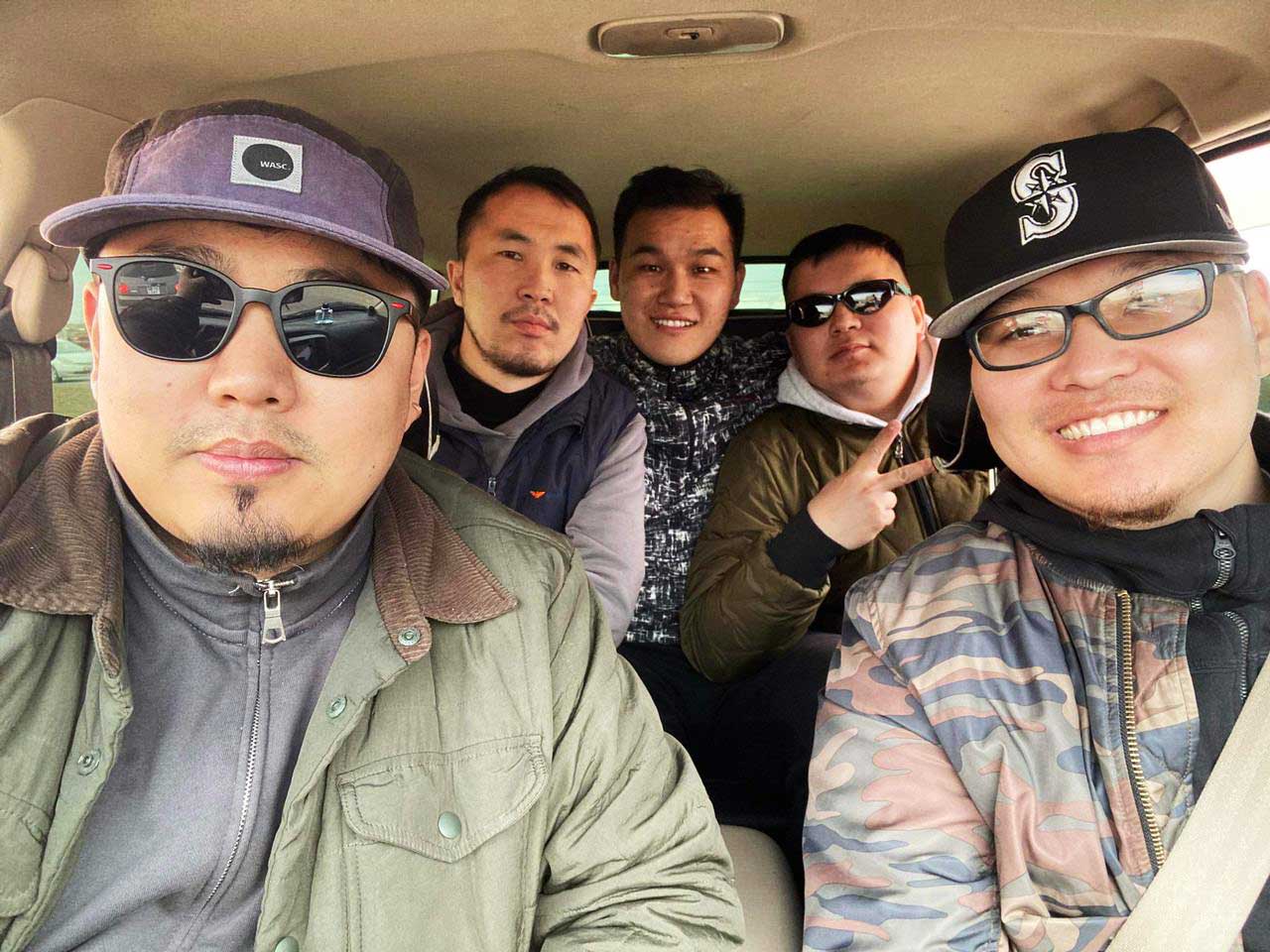
Ten years later, when Khongor was serving as a camp leader alongside leaders from other churches, a woman came up to him and said, “I know you.” Not recognizing her, Khongor said, “How do you know me?” She went on to explain that there was a young man who had recently joined their church after being released from prison. When sharing his testimony, this man would speak of an NGO that organized programs with the inmates and always sang two worship songs before leaving. When the young man got out of jail, he made it his goal to find a church. It was there that he heard the Gospel for the first time and now he and his family are Christians, attending church regularly.
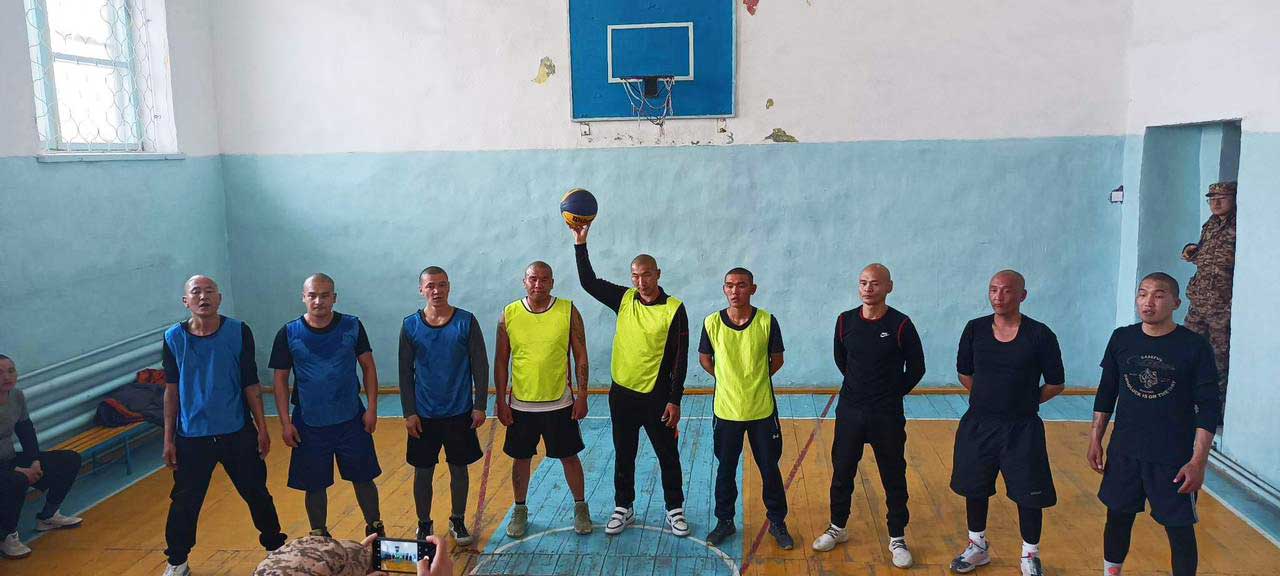
When Khongor heard this, his eyes filled with tears. For many years he had felt that he was serving the prisoners in vain. Yet here he was, hearing the testimony of an inmate touched by this fellowship with believers, and he was filled with gratitude. He was reminded that God is trustworthy and said, “We should not rush to see results in a short period of time, instead we should continue sharing the Gospel and the rest is God’s work.”
Attending the Haggai Leader Experience (HLE) only further encouraged Khongor to spread the Good News regardless of results. At a turning point in his own life, where he found himself wondering if he should continue to do ministry work or rather lead a simple life, the HLE strengthened his conviction to not grow weary of doing good. Meeting other leaders from countries around the world, who were also working towards restoration through the Gospel, made him feel part of something bigger.
Khongor was so encouraged by his HLE that he said with confidence, “I believe that thousands of people and children in Mongolia will be brought to the kingdom of God through this training.”
Written by Carolyn Grant
When Sharing the Gospel Feels Pointless
Prisons in Mongolia are harsh and have a dark history of torture. Some held prisoners in wooden “coffins,” well into the 20th century. Amnesty International has documented torture, neglect, and inhumane treatment, and the U.S. Department of State found last year that “some prisoners and detainees were subjected to unnecessary force and cruel, inhuman, or degrading treatment or punishment, particularly to obtain confessions.” While there are cameras in some facilities, they’ve been conveniently “broken” during moments of physical harm to prisoners. In prisons in the country, prisoners spend most of their days laboring outside in harsh weather conditions. It’s something all Mongolians are aware of, but what hope can they bring?
Khongor Munkhtugs decided apathy wasn’t a course of action. Fifteen years ago, when sharing the Gospel was forbidden in Mongolian prisons, Haggai leader Khongor Munkhtugs started a non-governmental organization (NGO) so that he and his ministry partners could run programs with the inmates. They played games, organized competitions, brought in food and drinks at their own expense, and made it their goal to always end the program singing two worship songs. Even though he knew that the interactions brought the prisoners joy, Khongor would often leave wondering if he had made any difference in their lives.

Ten years later, when Khongor was serving as a camp leader alongside leaders from other churches, a woman came up to him and said, “I know you.” Not recognizing her, Khongor said, “How do you know me?” She went on to explain that there was a young man who had recently joined their church after being released from prison. When sharing his testimony, this man would speak of an NGO that organized programs with the inmates and always sang two worship songs before leaving. When the young man got out of jail, he made it his goal to find a church. It was there that he heard the Gospel for the first time and now he and his family are Christians, attending church regularly.

When Khongor heard this, his eyes filled with tears. For many years he had felt that he was serving the prisoners in vain. Yet here he was, hearing the testimony of an inmate touched by this fellowship with believers, and he was filled with gratitude. He was reminded that God is trustworthy and said, “We should not rush to see results in a short period of time, instead we should continue sharing the Gospel and the rest is God’s work.”
Attending the Haggai Leader Experience (HLE) only further encouraged Khongor to spread the Good News regardless of results. At a turning point in his own life, where he found himself wondering if he should continue to do ministry work or rather lead a simple life, the HLE strengthened his conviction to not grow weary of doing good. Meeting other leaders from countries around the world, who were also working towards restoration through the Gospel, made him feel part of something bigger.
Khongor was so encouraged by his HLE that he said with confidence, “I believe that thousands of people and children in Mongolia will be brought to the kingdom of God through this training.”
Written by Carolyn Grant
When Sharing the Gospel Feels Pointless
Prisons in Mongolia are harsh and have a dark history of torture. Some held prisoners in wooden “coffins,” well into the 20th century. Amnesty International has documented torture, neglect, and inhumane treatment, and the U.S. Department of State found last year that “some prisoners and detainees were subjected to unnecessary force and cruel, inhuman, or degrading treatment or punishment, particularly to obtain confessions.” While there are cameras in some facilities, they’ve been conveniently “broken” during moments of physical harm to prisoners. In prisons in the country, prisoners spend most of their days laboring outside in harsh weather conditions. It’s something all Mongolians are aware of, but what hope can they bring?
Khongor Munkhtugs decided apathy wasn’t a course of action. Fifteen years ago, when sharing the Gospel was forbidden in Mongolian prisons, Haggai leader Khongor Munkhtugs started a non-governmental organization (NGO) so that he and his ministry partners could run programs with the inmates. They played games, organized competitions, brought in food and drinks at their own expense, and made it their goal to always end the program singing two worship songs. Even though he knew that the interactions brought the prisoners joy, Khongor would often leave wondering if he had made any difference in their lives.

Ten years later, when Khongor was serving as a camp leader alongside leaders from other churches, a woman came up to him and said, “I know you.” Not recognizing her, Khongor said, “How do you know me?” She went on to explain that there was a young man who had recently joined their church after being released from prison. When sharing his testimony, this man would speak of an NGO that organized programs with the inmates and always sang two worship songs before leaving. When the young man got out of jail, he made it his goal to find a church. It was there that he heard the Gospel for the first time and now he and his family are Christians, attending church regularly.

When Khongor heard this, his eyes filled with tears. For many years he had felt that he was serving the prisoners in vain. Yet here he was, hearing the testimony of an inmate touched by this fellowship with believers, and he was filled with gratitude. He was reminded that God is trustworthy and said, “We should not rush to see results in a short period of time, instead we should continue sharing the Gospel and the rest is God’s work.”
Attending the Haggai Leader Experience (HLE) only further encouraged Khongor to spread the Good News regardless of results. At a turning point in his own life, where he found himself wondering if he should continue to do ministry work or rather lead a simple life, the HLE strengthened his conviction to not grow weary of doing good. Meeting other leaders from countries around the world, who were also working towards restoration through the Gospel, made him feel part of something bigger.
Khongor was so encouraged by his HLE that he said with confidence, “I believe that thousands of people and children in Mongolia will be brought to the kingdom of God through this training.”
Written by Carolyn Grant


